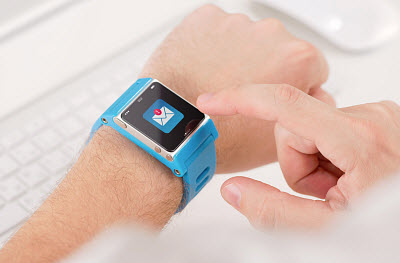Despite the fact that the majority of these mobile devices are ugly and limited, wearers adore them.
It is no mystery that smartwatches are taking off like wildfire, as they were the focus of all of the top headlines from the Mobile World Congress at the end of February, but what is striking to many is that these geeky, limited devices are becoming just as popular among consumers as they are among manufacturers.
This has caused analysts and tech experts to ask themselves where the true appeal of these gadgets lies.
While some more attractive models are now being released, until very recently, smartwatches looked like something straight from a bad made for T.V. sci-fi movie. Still, that hasn’t seemed to stop manufacturers from pumping them out and it hasn’t halted consumers from considering them the newest must-have accessory. These additional mobile screens are being seen a little bit of everywhere, whether they are from Pebble, Sony, Samsung, SPOT, Fossill, or any number of other players (other than Apple, who hasn’t arrived in this market, yet).
What is the secret to the way that smartwatches have won over the public?
These wearable technology devices did receive the first wave of attention from early tech adopters. That said, many of this demographic instantly fell in love with their new accessories. It gave them the chance to experiment with the latest types of products on the market while taking advantage of a whole new line of features and conveniences.
However, over the last handful of months, the interest in this type of wearable smart technology has suddenly taken off, far beyond that limited niche. This is particularly true among devices that offer fitness tracking features and apps. Suddenly, these mobile devices are no longer being lumped into the same category as the taped glasses and pocket protector cliché. Instead, they are being seen as mainstream and quite fashionable.
This shift in attitude toward smartwatches is expected to be a massive driver for the sale of these devices, which will only be expanded as next generations of the devices are launched based on the features and capabilities that consumers show that they value the most. Of course, the anticipated release of the iWatch before the end of the year will also be worth watching.

 Intel has a strong interest in wearable devices because of trends that have begun to emerge among consumers. Google Glass has managed to highlight the interest that consumers have in wearable devices. These
Intel has a strong interest in wearable devices because of trends that have begun to emerge among consumers. Google Glass has managed to highlight the interest that consumers have in wearable devices. These 